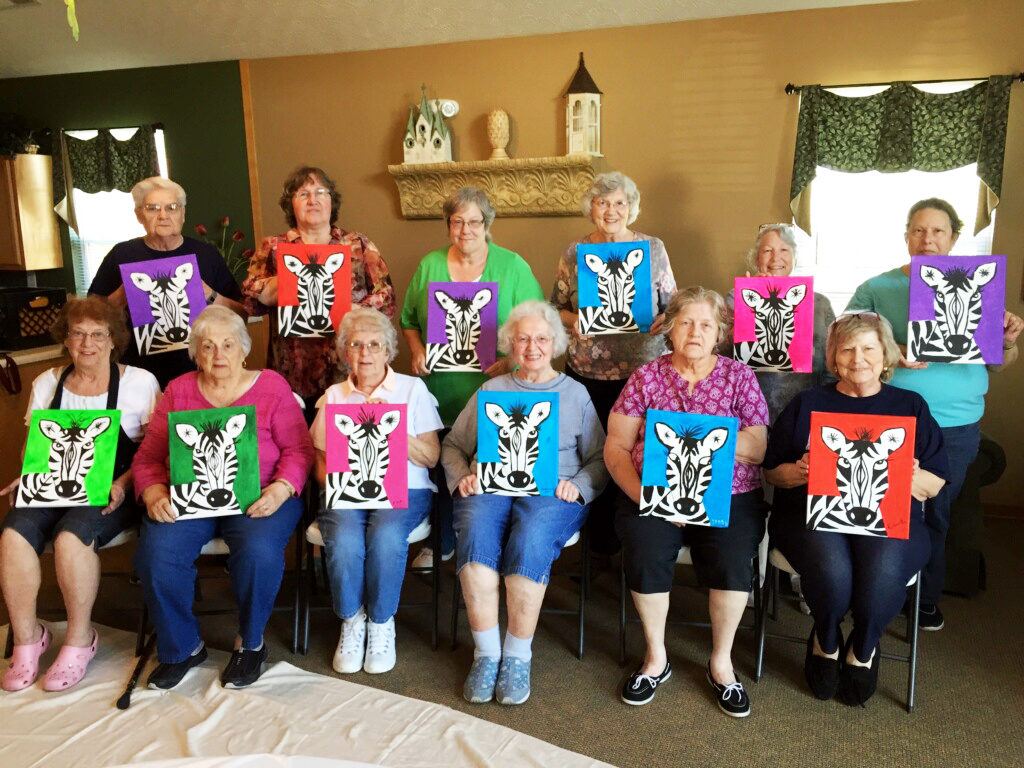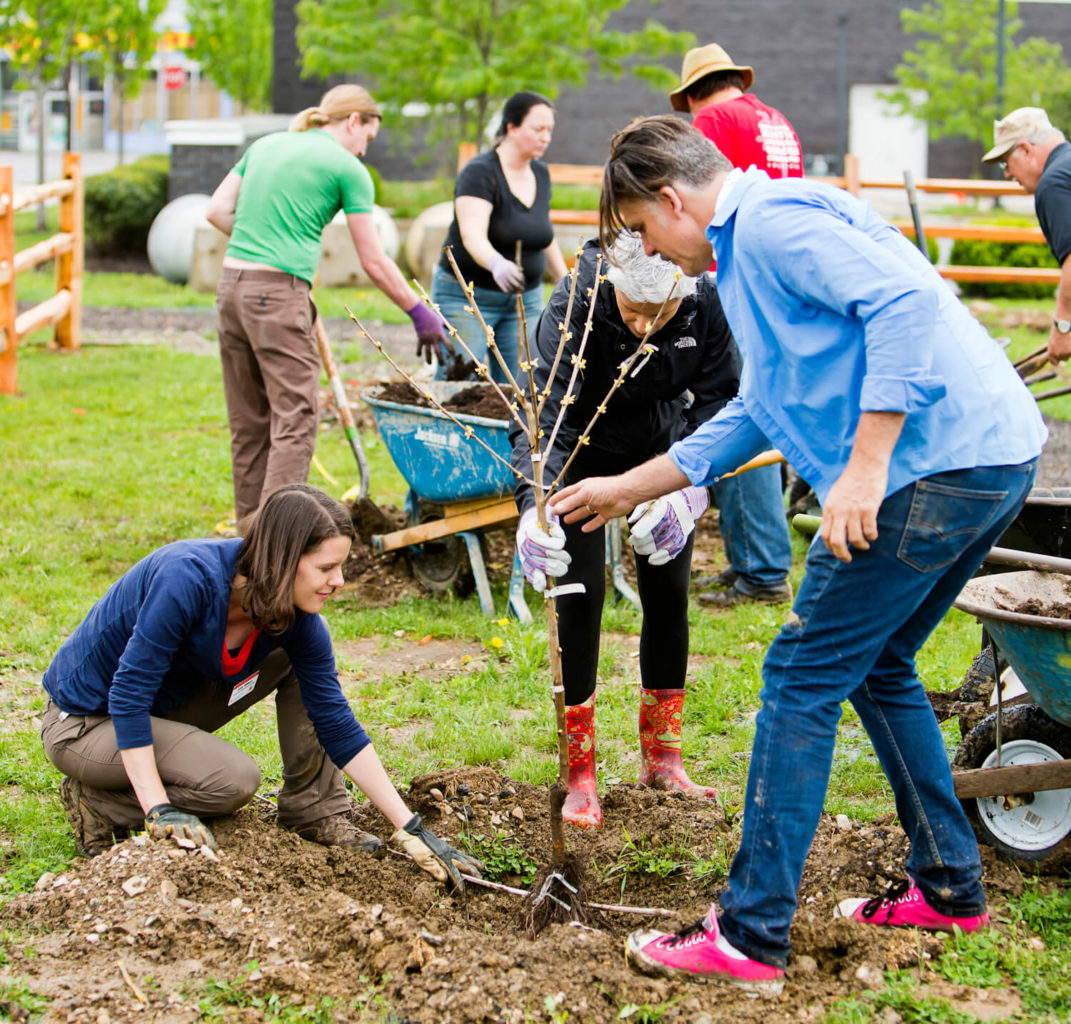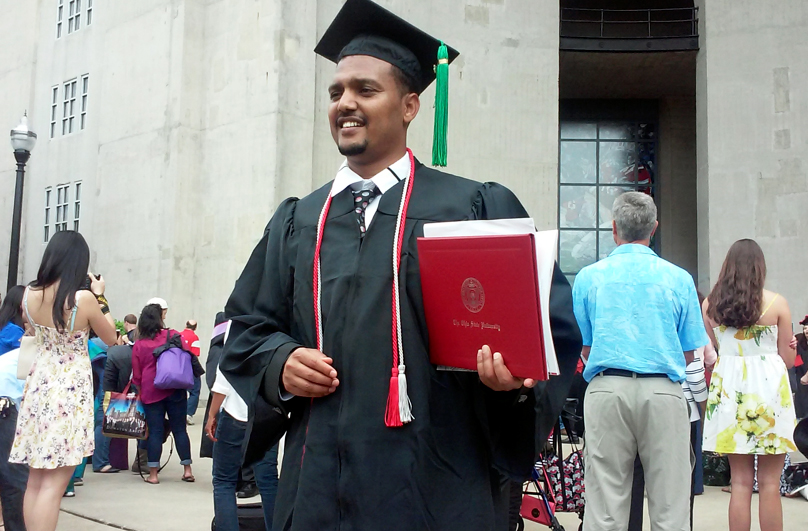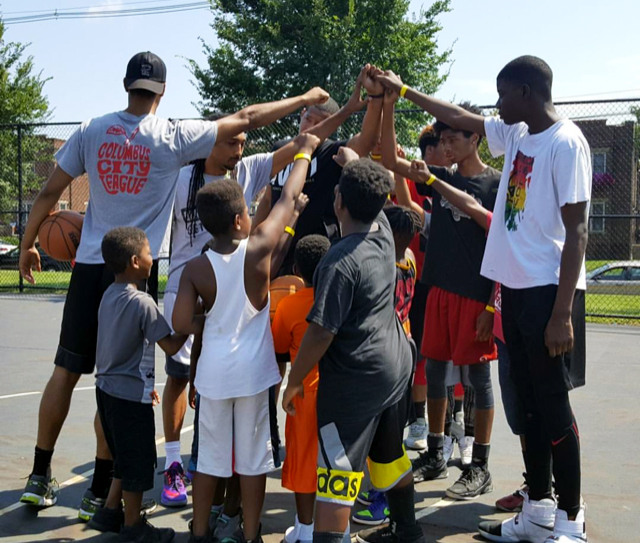Extending Our Mission Through Creative Investments
OCIC is a 501(c)(3) non-profit affiliate of OCCH, created to extend the mission of OCCH through creative and transformative philanthropic investments. These resources are granted to partners working creatively to improve health and quality of life outcomes for residents of affordable housing communities where OCCH has investments.
Raised since 2012
Contributed by OCCH
Raised by Impact Investors since 2012
Raised by Impact Investors in 2017
OCIC is funded in part through $12.5 million of OCCH’s retained earnings, and with $7.7 million of support from several Impact Investors – most notably, Huntington Bank, Fifth Third Bank, Key Bank, and JPM Capital Corporation (Chase).
Hover over the pie chart for more details.
Huntington CDC
Key CDC
Fifth Third CDC
Nationwide Insurance
First Financial Bank
US Bancorp CDC
JPM Capital Corp. (Chase)
Other
2017 OCIC Awards by Program
In 2017, we awarded $3.9 million across five dedicated programs. OCIC is proud to fund programs and initiatives that reinvest in people, and in our communities.
Hover over the pie chart for more details.
Capital for Partners
Resident Development Fund – Summer Camp
Resident Development Fund – General
Resident Development Fund – Property Improvement
Place-Based Strategies Fund
Jerry Grier Scholarship Fund
CPO Impact
Ohio Capital Impact Corporation
Carol Mount Peterson Resident Development Fund
Named after Carol Mount Peterson, who served on the Board of OCCH for 16 years, the Resident Development Fund defines OCCH’s unique commitment to removing barriers and providing opportunities for residents to strive towards better lives. Grants support partners working to solve the issues we care most about – youth empowerment and education; summer camps and enrichment; aging-in-place; safety and security; and educational and workforce advancement.

Place-Based Strategies Fund
The Place-Based Strategies Fund empowers highly invested residents and organizations focusing their work to enhance and revitalize their neighborhoods. Grants support innovations in public art, community gardens, urban agriculture, commercial revitalization and community engagement, helping to build voice, visibility and power among residents where decisions are made about the future of place.

Jerry Grier Scholarship Program
The Jerry Grier Scholarship Fund assists low-income, first-generation, and non-traditional students living in affordable housing communities with the costs of attending a college or university. Since the Fund’s inception, 62 students have been supported in achieving their educational goals.

Capital for Partners
Capital for Partners provides a flexible source of funding for non-profit partners. Providing unrestricted funds is one giving strategy OCIC believes is key to helping organizations with deep commitment to the people and communities we serve and demonstrating solutions that effect large-scale impact.

CPO Impact
OCIC is proud to support the work of CPO Impact, an affiliate of Community Properties of Ohio created in 2007. Funds for selected programs help to deliver interventions designed to increase housing stability, enhance neighborhood safety, and build on the capabilities of residents striving to cultivate their well-being, family stability, and their children’s success.

Explore Our Work in 2017
We know that what is measured matters, but numbers aren’t the only evidence of our impact.
1,325 Seniors Aging-in-Place, Leading Active Lives, and Living with Independence and Freedom
In Guernsey, Hamilton, Hancock, Medina and Williams Counties (Ohio), more than 1,300 residents of senior housing communities are aging in place through efforts of partners like Episcopal Retirement Services, Buckeye Community Hope Foundation, and Cincinnati Metropolitan Housing Authority. These partners are working to link housing with support to help seniors maintain or improve their quality of life.
With funding support from Huntington Community Development Corporation, these organizations are using safe and affordable housing as a platform to deliver early intervention and prevention techniques that maintain or improve seniors’ functioning in activities of daily living. Group exercise, health screenings, nutrition education programs, and community building activities reinforce widespread and growing recognition that integrating housing and health services help those who are aging live longer and in better physical and mental health.
1,000 Children Ready for School and Starting at an Advantage
Through an initiative of Fifth Third Bank Community Development Corporation, children residing in affordable housing communities throughout Ohio and parts of rural Kentucky received back-to-school supplies and other school essentials. One in five children served were entering Kindergarten, a critical time in every child’s life. Backpack contents were targeted to specific age groups with children five and under receiving books and learning activities to promote literacy and cognitive development.
755 Children Attending Summer Camp
Summer Camps supported through the Carol Mount Peterson Resident Development Fund, Fifth Third Bank CDC, and Huntington CDC provide positive summer experiences for more than 700 youth. Quality summer camp programs with opportunities for experiential learning help to ensure that children are gaining, not losing, ground both academically and socially over the summer.
151 Youth Connected to Work Skills Training
With support from the Carol Mount Peterson Resident Development Fund and LCNB Bank, the Stuart & Mimi Rose Opportunity Zone for Youth, an initiative of Daybreak, Inc., was made possible. The Opportunity Zone houses Daybreak’s employment programs which provides homeless and transition aged youth with real-life experience in the construction and healthcare fields in a supportive and nurturing environment. Since the Opportunity Zone opened in October 2016, 151 youth have been provided assistance. Youth assisted through the program are more likely to get jobs, or better jobs, and increase their annual incomes.
7 Neighborhoods Impacted Through Creative Place-Making
The City of Columbus, Community Housing Network, the Wexner Center for the Arts at The Ohio State University, and the Parsons Avenue Merchants Association partnered to transform a vacant lot on the South Side of Columbus into a public park that incorporates fruit trees, walking paths, and fruit-inspired art installations. With support from the Place-Based Strategies Fund, partners in the South Side Fallen Fruits Orchard will engage community youth through ongoing art programming that explores the social and political implications of urban food cultivation as a way of inspiring collaboration and public conversations about access to public space, healthful food and recreational opportunities.



